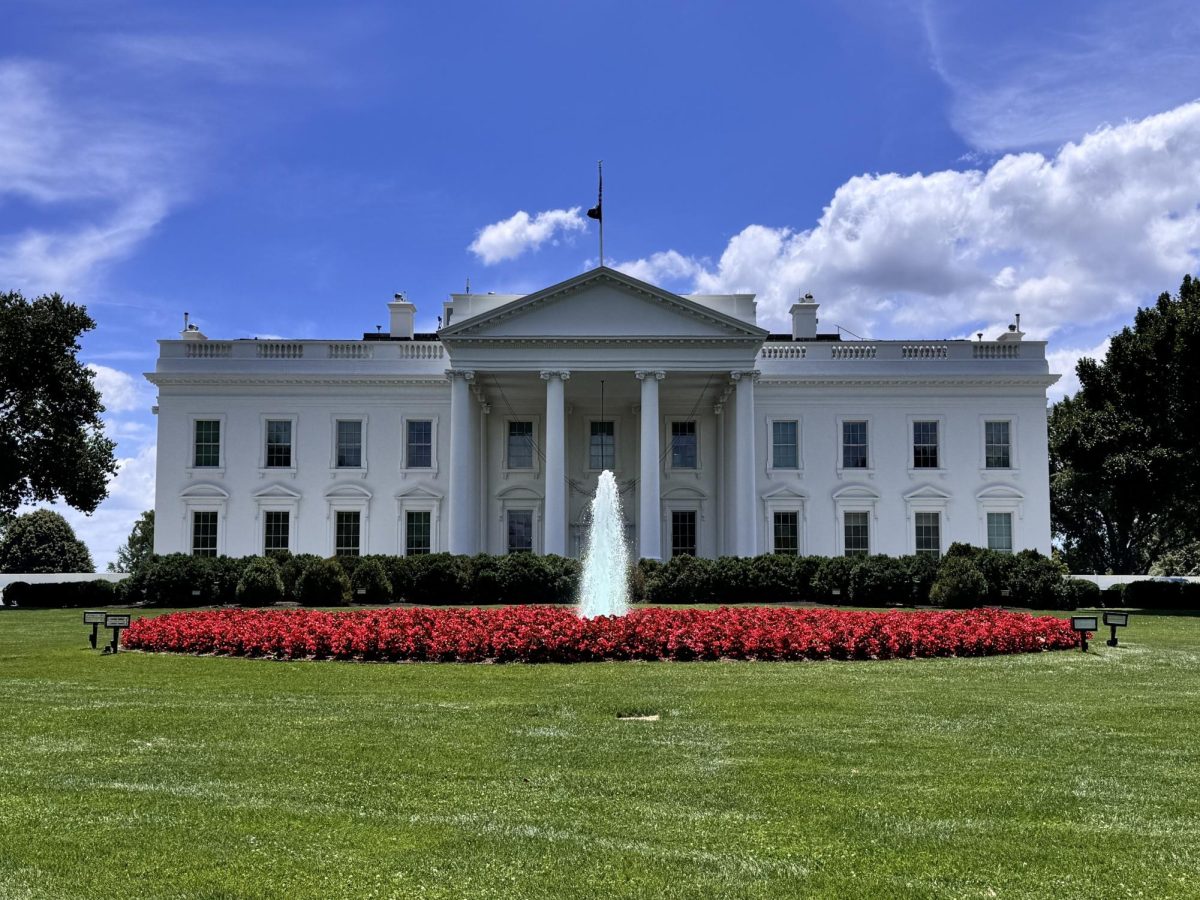
WIKIMEDIA COMMONS | The upcoming presidential administration change may bring changes in scientific priorities, according to Georgetown scientists and policy experts.
President-elect Donald Trump’s victory in November’s presidential election may prove to be a pivotal moment for the scientific community as his transition team begins to share its plans for scientific research funding and policy. Georgetown University scientists and policymakers are closely watching how a second Trump administration will impact scientific research and innovation.
Federal policies can shape research priorities and innovation through government funding, protection of intellectual property and influences in the market demand for cutting-edge technology. The U.S. government funds roughly 40% of basic scientific research through congressional funding, grants, loans and matching funds.
Although funding for the sciences may sometimes enjoy bipartisan support, it can also vary widely depending on the views of the administration.
Tomoko Steen, director of Georgetown’s graduate program in biomedical science policy and advocacy, shared how federal policy can significantly impact the direction of scientific research. For instance, according to Steen, the administration of former President George W. Bush banned embryonic stem cell research, significantly impacting scientists’ ability to conduct research in the field.
“Scientists in the United States working on embryonic stem cells went to England because they couldn’t do the research,” Steen told The Hoya. “So science can really be shaped by the administration.”
The incoming administration change may also impact scientists’ ability to speak freely about contentious topics. Regulations on major governmental research institutions like the National Institutes of Health (NIH) may prevent scientists from researching, promoting or discussing specific topics.
Dr. Michael Hodgson, former chief medical officer at Occupational Safety and Health Administration (OSHA) and adjunct professor in the Georgetown School of Health, explained former President Barack Obama’s approach to science policy. The administration sought to differentiate between scientists speaking on behalf of an agency and scientists voicing their personal views, a distinction the Trump administration did not emphasize.
“Under the Obama administration, most federal agencies had developed a science integrity policy where scientists could clarify they are not speaking as a federal employee,” Hodgson told The Hoya. “And then under the first Trump administration, there were multiple examples of scientists not being able to publish what they wanted.”
Hodgson said some of his research was not published because it did not align with the views of the first Trump administration.
“Several of my papers were held up at OSHA on indefinite hold not because people said they were wrong, but because they did not support the agency position on enforcement,” Hodgson said. “We changed some language to refocus from enforcement on compliance assistance so that we wouldn’t look like we were being nasty towards industry. That’s language stuff.”
However, Mark Richardson, a professor of government at Georgetown, said not all scientific administrations will be similarly affected. Richardson said he expects funding for organizations such as the National Science Foundation (NSF), which has historically not been politicized, to remain unaffected by political forces.
“Given the history of NSF in general and during President-elect Trump’s previous administration, I would not expect the NSF to be politicized resulting in funding being awarded for political reasons,” Richardson wrote to The Hoya. “I expect the NSF merit review process to continue as it has historically.”
However, Richardson also cautioned that a change in NSF leadership may cause changes in scientific research priorities, saying the transition may affect specific areas of science where Republicans and Democrats disagree, such as climate change policy.
“A key sign of change would be a change in the NSF Director, specifically the nomination and confirmation of someone unqualified for the position,” Richardson wrote. “For example, references to climate change and climate change programs were removed or buried on agencies’ websites during the first Trump administration.”
Hodgson emphasized that regardless of the presidential administration in power, scientists have a responsibility to maintain academic and intellectual integrity.
“Scientists are all held to a standard of honesty,” Hodgson said. “You’re supposed to document what you do, you’re supposed to be careful in your analyses. You’re supposed to write things in ways that are straightforward.”